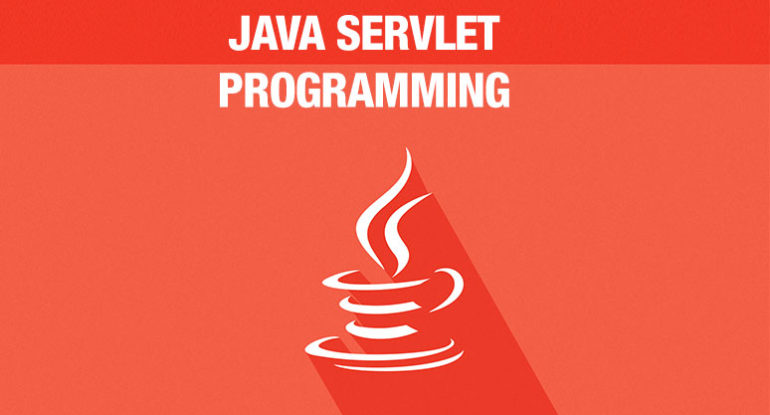- Home
- Database
- Networking
- Programming
- Online Courses
- Mobile Application
- Web App Developments
- Cryptocurrency Wallets and Mining Coins
- Q# Programming
- BlockChain Application Development
- Java Servlet Programming
- Java Training with Spring
- Developing Images with Docker
- C++ Training
- Python RPA Programming
- Excel VBA Training
- Ruby on Rails Training
- C# Training Course
- Testing
- Automation Test Engineer
- Penetration Testing
- Cucumber BDD
- Selenium Web Test Training Java
- Selenium Test Automation with PHP
- Selenium Test Automation with C# .NET and NUnit
- Android Appium Test Automation
- Online Performance Testing
- Python Automation Testing with Selenium and BDD
- Automation Test Architect
- Automation Test Analyst
- SpecFlow Automation Testing
- Contact
- About Us
Online Java Servlet Programming
12.7%
Course Overview
A Java Servlet is a special Java program that runs in a web server. Although servlets can respond to any types of requests, they most commonly implement applications hosted on Web servers. Java Servlet is used to develop dynamic content of a web application. Java Servlet technology is similar to other dynamic Web content technologies such as PHP and ASP.NET. This course will teach you extensive Java programming skills with Servlet and JSP (Java Server Pages).
COURSE START DATES
| Start Date | Time | Days | Duration | Location |
|---|---|---|---|---|
| 25/05/2020 | 10.00-17.00 | Mon to Wed | 3 Classes | Brentford |
| 13/07/2020 | 10.00-17.00 | Mon to Wed | 3 Classes | Brentford |
| 21/09/2020 | 10.00-17.00 | Mon to Wed | 3 Classes | Brentford |
| 23/11/2020 | 10.00-17.00 | Mon to Wed | 3 Classes | Brentford |
Prerequisites
Target Audience
Course Content
Java servlet Programming
- How the Web works, Thin Clients, TCP/IP
- HTTP overview, Brief HTML review
- Overview of Java EE, servlets & Web
- applications.
- Servlet Basics
- HTML Forms
- HTTP: Request-response, headers, GET,
- POST
- Overview: How Servlets Work
- Servlet Lifecycle: init(), service(), destroy()
- Requests and responses
- Core Servlet API: GenericServlet,
- ServletRequest, and ServletResponse
- HTTP Servlets: HttpServletRequest,
- HttpServletResponse and HttpServlet
- Accessing Parameters
- HTTP headers and MIME types
- RequestDispatcher: Including and forwarding
- Sharing data with the request object attributes
- Sharing data with ServletContext attributes
- Error Handling
- Basics and Overview
- JSP architecture
- JSP tags and JSP expressions
- Fixed Template Data
- Lifecycle of a JSP
- Model View Controller (MVC)
- Model 1/Model 2 Architecture
- Data Sharing among servlets & JSP
- Object scopes or “buckets”
- Request, application, session and page scope
- Predefined JSP implicit objects (request, session, application, page)
- Custom tags overview
- Reducing JSP complexity
- Tag Libraries
- Tag Library Descriptor (TLD)
- Loading a tag library in a web app
- The JSTL
- JSP Expression Language (EL)
- Using custom tags
- The c:url, c:param, c:forEach, c:out tags
More JSP Capabilities and Session
- HTTP as a stateless protocol
- Hidden form fields
- Cookies: Overview, API, Using cookies
- Session overview: Cookies and session tracking
- HttpSession
- Putting data into a session object
- Retrieving data from a session object
- Using session data in servlets and JSPs
- Exception handling and error pages
- Directives (page, include, others)
- Import declarations
- Multithreading considerations and data safety
- SingleThreadModel interface
- JSP Directives
- JSP Error Pages
- JSP and Java
- Declarations, Scriptlet overview,
- Scriptlet syntax
- Overview of JSTL libraries
- The JSTL Expression Language
- Expressions, Type Coercion, Operators,
- String concatenation, Implicit Objects
- The Core JSTL Library
- General Purpose: c:out, c:set, c:catch
- Conditional: c:if, c:choose,
- Overview of other capabilities
- Servlet Filter overview
- Filtering examples, lifecycle, & filter chains
- Filter API, Modifying a request, Modifying a response
- Struts Overview
- Advanced MVC, Struts overview
- Command and State patterns
- Struts View and Controller elements
JDBC
- Relational Database and JDBC Overview
- Overview, Table Relationships, Web
- Based Data Access, JDBC Characteristics
- JDBC Architecture, JDBC API Overview
- DriverManager, JDBC Drivers
- Naming databases with JDBC URLs
- Connecting to a database
- Connection interface, Establishing a connection
- DataBaseMetaData
- Handling Database Exceptions
- DAO, Data Access Objects, O-R
- Mapping, Value Objects
- Processing Database Data
- Executing statements, precompiled statements and stored procedures
- Processing ResultSets,
- Dealing with Null data
- Updating, inserting, retrieving data
- Controlling Transactions
- JDBC Driver Types
- DataSource
- Java EE and DataSource, Using JNDI
- Connection Pooling
- Overview, Usage, Advantages
- Other Database Access Technologies
- SQLJ, O-R Mapping Tools, JDO (Java
- Data Objects), EJB Entity Beans
- Advanced JDBC Features
- Batch Updates, Scrollable Result Sets,
- Rowsets, User Defined Types, BLOBS, CLOBS
Component Integration and EJB
- Web Architecture choices
- Connecting servlets to a database via DataSource
- Overview of EJB
- High-level EJB architecture
- Roles within EJB
- Client view of a session bean
- JNDI (Java Naming and Directory Interface)
- Remote and Home Interfaces
- Writing an EJB client
- XML and Web Services
- JMS Java Message Service




Reviews
There are no reviews yet.